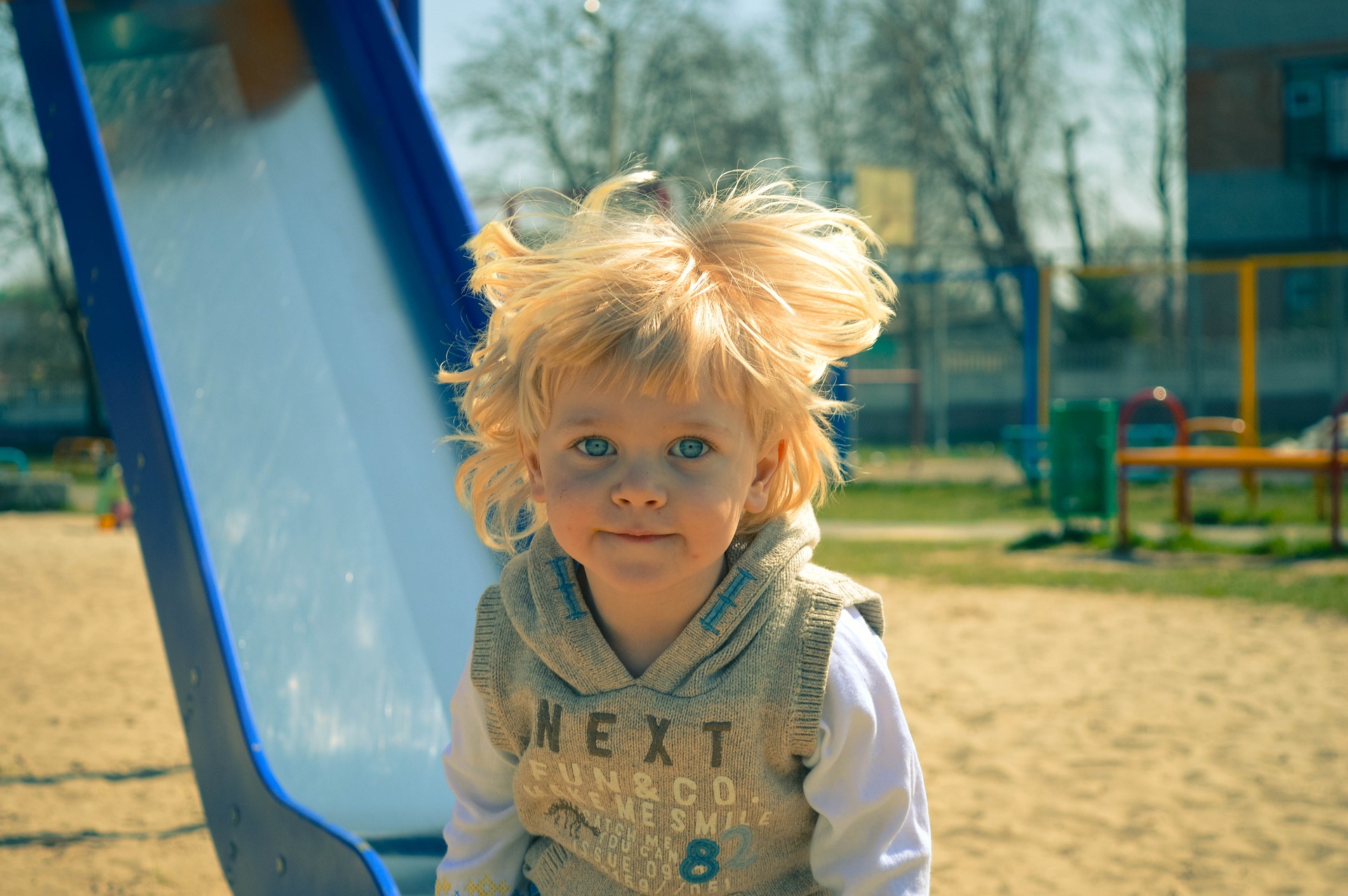Just a swinging, sliding and climbing!
There are many benefits to unstructured playground time for children of all ages.

Children develop in particular patterns. For example, they have to be able to sit up by themselves before they can crawl and eventually walk. Same is true for how they develop their handwriting skills. Tearing, cutting and scribbling occur way before the child is able to write. They have to develop the little muscles (fine motor muscles) in their hands before they are able to grasp a pencil and make legible symbols, known as letters.
As soon as children arrive at a playground, they head directly for the swings, slides and various climbing structures. Similar to learning to cut with scissors before being able to write their name, children need lots of unstructured playground time to benefit their developing brain. All of these activities are beneficial to the development of a young mind. When a child is on a playground, they are using their body in a healthy way. As they play on a playground, they are sending oxygen to their muscles while at the same time producing endorphins that have positive effects on their mood and activity level. Developing a strong sensory system creates a foundation for more complex learning later in life.
With so much technology consuming much of their day, children do not have as many opportunities to develop the vestibular (balance), tactile (touch) and proprioceptive (helping us move through space and move our bodies effectively) areas of their brain. Time on the playground swinging, climbing and sliding allows these important systems to develop.
Swinging allows a child to develop coordinated movements. It is almost impossible to teach a child how to swing. Through lots of practice and the motion of moving back and forth, they are successful in learning how to make a swing move. An area of development we don’t really think about too much is our sensory system. Our sensory system is how our brain is organized and interprets information. This is the system that allows us to regulate our bodies when the environment is loud, quiet, has a strange smell, etc. It allows us to cope in a variety of different situations.
Swinging is one of the best activities for young children to develop their sensory system. When a child swings, they are developing their ability to adapt to different sensations. The classroom is unusually loud, the lunchroom is overly chaotic, the cleaning crew used a new cleaning product or the clock is ticking loudly. All of these can affect a child’s ability to learn. If their sensory system is underdeveloped, it can be difficult for them to focus, keep their hands to themselves or walk down the hall to the lunch room.
Other benefits of swinging include:
- Swinging can be soothing as well as fun.
- Swinging is calming.
- Swinging encourages social interaction and development.
- Swinging increases spatial awareness.
- Swinging helps develop gross motor skills—pumping legs, running, jumping.
- Swinging helps develop fine motor skills—grip strength, hand, arm and finger coordination.
- Swinging develops a child’s core muscles and helps with the development of balance.
- Spinning on a swing stimulates different parts of a child’s brain simultaneously. This is important for learning skills such as spatial awareness, rhythm and balance and muscle control.
 Climbers and slides help a child exercise their body in a natural way. Raising their arms above their shoulders to hold onto the monkey bars increases cardiovascular flow. At the same time they are stretching, which increases their flexibility. When they are climbing a ladder and pulling up with their hands and arms, they are building their upper body, grip and arm strength. Climbing to the top of the ladder also helps with leg strength and coordination. Sliding helps develop the vestibular system, therefore their sense of balance.
Climbers and slides help a child exercise their body in a natural way. Raising their arms above their shoulders to hold onto the monkey bars increases cardiovascular flow. At the same time they are stretching, which increases their flexibility. When they are climbing a ladder and pulling up with their hands and arms, they are building their upper body, grip and arm strength. Climbing to the top of the ladder also helps with leg strength and coordination. Sliding helps develop the vestibular system, therefore their sense of balance.
Unstructured play allows children to develop their vestibular system. This system is responsible for our balance and the sense of touch. It also develops the proprioceptive system, which is our system of tendons, muscles and joints.
It is imperative that kids of all ages get a minimum of 30 minutes of active play twice a day. During this time, it is important caregivers allow children the opportunity to explore outdoor equipment and grow physically. Allowing a child to have unstructured free play and the opportunity to climb, slide, swing and hang from the monkey bars will give them advantages in many ways.
To learn about the positive impact children and families experience due to MSU Extension programs, read our 2017 impact report: “Preparing young children for success” and “Preparing the future generation for success.” Additional impact reports, highlighting even more ways Michigan 4-H and MSU Extension positively impacted individuals and communities in 2017, can be downloaded from the Michigan 4-H website.



 Print
Print Email
Email